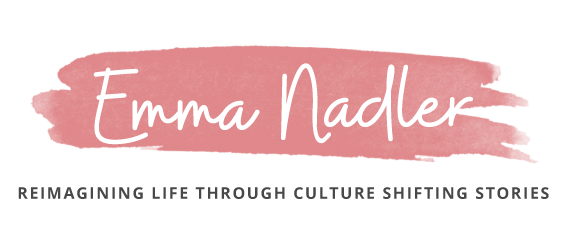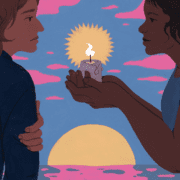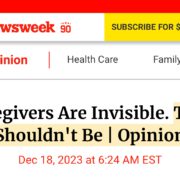The Washington Post
A loneliness cure — make one friend a year
Making new friends can be hard. Here are 5 ways to make 1 friend a year
5 ways to support someone going through a life-altering loss
Hope is possible in every season. Here’s how to spark it.
How loss — and joy — can permeate everyday life
Six ways to make friendships easier — and more fun
Five things to try instead of ending a friendship
Huffington Post
Never Thought I’d Need To Give My 9-Year-Old Medical Cannabis. Here’s How We Got Here
Salon
What I wish I’d known about bisexuality and the truth about love
PBS’s Next Avenue
Someday, My Father Will Die. Today, We Are Enjoying Lunch Together
How To Cope With Life as a Caregiver
5 Ways To Be a More Generous Friend
Newsweek
Caregivers Are Invisible. They Shouldn’t Be
My Friend Thought There Were No Bullets in the Gun
Psychology Today
What We Can Learn from the Grammys “Fast Car” Performance
Scary Mommy
5 Things A Parent Really Needs When Raising A Child With Special Needs
The Minnesota Star Tribune
Stressed out about the election? Here are five ways to cope.
Kindness with a side of gummy bears
It’s fair to say parenting isn’t as easy-going as it used to be
Sunday school and the search for peace
Kveller
What Got Me Through My Baby’s Very Difficult First Year



